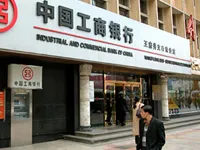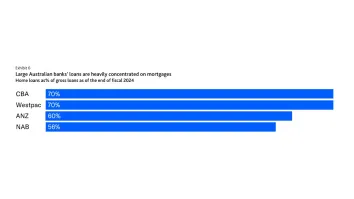
China bad debt seen to soar to 60% of bank equity
Analyst say intervention of Central Huijin to shore up the banks shows that banks’ financial health is deteriorating.
Loan losses at Chinese banks may climb to levels equivalent to 60 percent of their equity capital as real-estate companies and local governments fail to repay debts, according to Credit Suisse Group AG.
Nonperforming loans will probably increase to 8 percent to 12 percent of total debt in the “next few years,” causing losses amounting to 40 percent to 60 percent of Chinese banks’ equity, Hong Kong-based analysts led by Sanjay Jain at Credit Suisse wrote in a research report dated Oct. 12. Jain cut 2012 and 2013 profit estimates by as much as 25 percent and maintained an “underweight” rating on the industry.
Chinese bank stocks have tumbled this year, sending the MSCI China Financials Index down as much as 43 percent, amid growing concern that slower economic growth will spur bad debts after a three-year credit boom. The retreat sent price-to- earnings ratios on bank stocks to record lows and prompted the government to begin buying shares in the four biggest lenders this week. The MSCI gauge gained 9 percent in the past two days.
“Any sustained outperformance will be likely only after banks effectively tackle issues related to asset quality,” Jain wrote. Lending to real estate companies, manufacturers, local governments and small and medium enterprises may cause more than four fifths of the total bad debt, the analyst said.
Jain had previously estimated that Chinese banks’ bad debt ratio would be 4.5 percent to 5 percent. The projection compares with a “base case” forecast of 5 percent to 8 percent by Moody’s Investors Service in July. Nonperforming loans were 1 percent of total debt as of June, according to the People’s Bank of China.
Central Huijin Investment Ltd., an arm of China’s sovereign wealth fund, said Oct. 10. it began buying shares of the four biggest Chinese banks and that it will continue with “related market operations,” without providing details on how much it will buy. Huijin’s purchases haven’t changed the bearish outlook for the industry, said Jim Chanos, founder of New York-based hedge fund Kynikos Associates, who has been short-selling Chinese banks, property developers and construction companies.
View the full story in Business Week.



















 Advertise
Advertise










